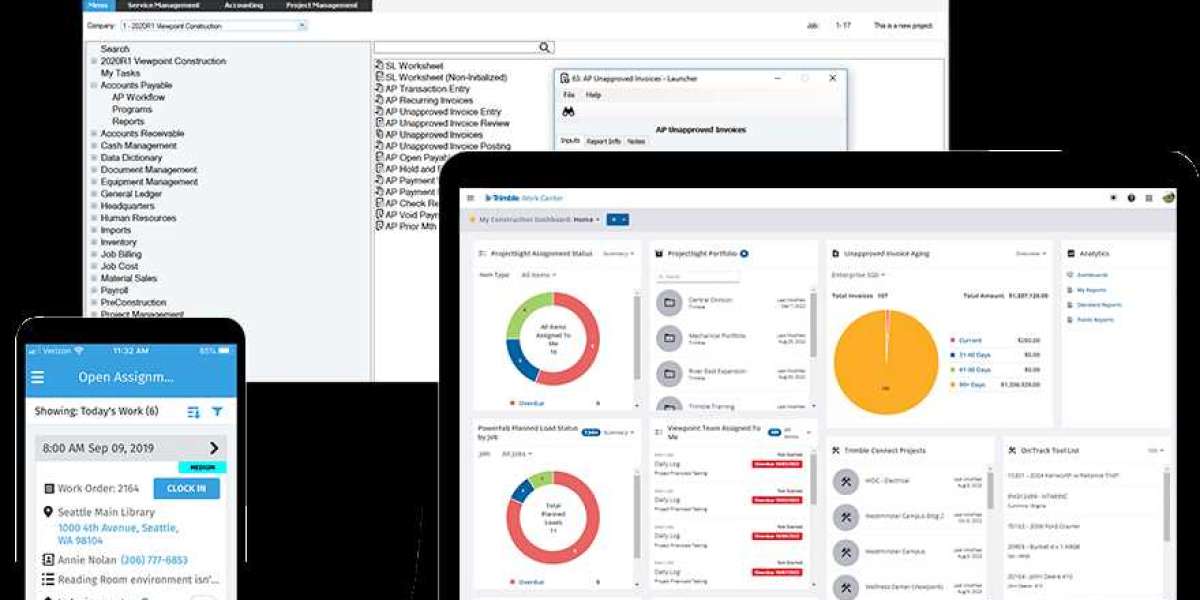The construction industry in Pakistan has seen significant growth in recent years, driven by rapid urbanization, infrastructure development, and residential construction. Despite its potential, the industry faces persistent challenges such as project delays, cost overruns, and resource mismanagement. To combat these issues and increase overall project efficiency, many companies are turning to Construction Management Software (CMS). By automating critical processes and enhancing collaboration, CMS solutions are transforming how construction projects are managed across Pakistan.
In this article, we explore the role of construction management software in Pakistan, how it addresses industry challenges, and the potential benefits it offers to construction firms in the country.
What is Construction Management Software?
Construction Management Software (CMS) is a comprehensive digital tool designed to help construction companies manage and streamline all aspects of their projects. CMS allows project managers to plan, schedule, budget, and track resources in real time. From the early stages of project initiation to the final handover, CMS serves as an integrated platform that facilitates project monitoring, communication, and documentation.
By bringing together various functions into one platform, CMS simplifies construction project management and reduces the risk of errors. This is particularly important for Pakistan, where construction practices have traditionally been reliant on manual processes and paperwork. The digitalization of construction management offers immense potential for improving efficiency and cost-effectiveness across the sector.
Core Features of Construction Management Software
Project Scheduling and Planning Effective planning is critical to the success of any construction project. CMS provides tools like Gantt charts and scheduling calendars to allow project managers to map out tasks, set milestones, and allocate resources efficiently. By visualizing the project timeline, construction teams can better coordinate activities and ensure that deadlines are met without delays.
Budgeting and Financial Tracking Budget management is one of the most common challenges in the construction industry. CMS enables project managers to create accurate budgets, track expenses, and monitor financial performance in real time. By providing detailed financial reports and alerts, CMS helps prevent cost overruns and enables managers to adjust resources when necessary to stay within budget.
Resource Management Construction projects require careful management of resources such as materials, labor, and equipment. CMS helps project managers efficiently allocate resources based on availability and project requirements. This reduces the risk of material shortages or equipment downtime and helps optimize the use of labor, contributing to overall project efficiency.
Collaboration and Communication One of the key challenges in construction projects is ensuring clear communication among all stakeholders, including project managers, contractors, subcontractors, suppliers, and clients. CMS provides a centralized communication platform that allows real-time sharing of project updates, documents, and issues. This fosters collaboration and minimizes miscommunication that can lead to delays or mistakes.
Document Management Construction projects generate a massive amount of documentation, including contracts, designs, permits, invoices, and more. CMS provides a secure, cloud-based document management system where all project files can be stored and accessed by authorized users. This system improves data accessibility, ensures version control, and reduces the risk of lost or misplaced documents.
Risk Management Construction projects are susceptible to numerous risks, including safety hazards, delays, and budget issues. CMS offers tools to assess and track risks throughout the project lifecycle. By identifying potential risks early, project managers can develop strategies to mitigate them, reducing the likelihood of disruptions and keeping projects on track.
Mobile Accessibility Many CMS platforms offer mobile applications, allowing project teams to access data and updates from anywhere, at any time. This feature is especially useful for construction projects in Pakistan, where workers may be spread across multiple sites. With mobile access, team members can easily upload reports, track progress, and communicate in real time, regardless of their location.
Benefits of Construction Management Software in Pakistan
Improved Efficiency One of the biggest advantages of CMS is its ability to streamline and automate many time-consuming manual processes. By centralizing project management tasks like scheduling, budgeting, and resource allocation, CMS reduces the administrative burden on project teams, allowing them to focus on critical decision-making and problem-solving.
Cost Savings With real-time tracking of expenses, CMS helps project managers identify potential budget issues before they become significant problems. This level of control allows construction firms in Pakistan to avoid unnecessary expenses, reduce waste, and improve profitability. By ensuring that resources are used efficiently, CMS contributes to the overall financial health of the project.
Better Communication and Coordination Effective communication is essential to ensure that all team members are aligned and working toward the same goals. CMS platforms offer real-time communication tools that keep stakeholders informed of any changes, issues, or updates throughout the project lifecycle. By reducing the chances of miscommunication, CMS promotes better collaboration, leading to smoother project execution.
Increased Transparency CMS provides a transparent view of project progress, including timelines, costs, resources, and risks. This transparency allows project owners, managers, and stakeholders to have a clear understanding of the project’s status at any given time. The ability to track milestones and review reports in real time fosters trust among all parties involved and helps avoid disputes over progress or performance.
Risk Mitigation Construction projects are inherently risky due to factors like weather, labor issues, and regulatory challenges. CMS tools allow project managers to assess risks early and plan for contingencies. By continuously monitoring project activities and performance, CMS helps mitigate potential disruptions and ensures that the project is completed on time and within budget.
Data-Driven Decision-Making With real-time data at their fingertips, project managers can make informed decisions based on accurate, up-to-date information. Whether it’s reallocating resources, adjusting schedules, or troubleshooting issues, CMS provides the insights necessary to make timely and effective decisions that keep the project on track.
Enhanced Accountability CMS ensures that every task, resource, and expense is tracked and recorded. This creates a clear trail of accountability, where project managers can easily review who is responsible for each task or decision. In case of delays or issues, accountability features within the software help identify the root cause and take corrective actions.
Challenges of Implementing Construction Management Software in Pakistan
Initial Costs One of the main hurdles in adopting CMS in Pakistan is the initial investment required to purchase and implement the software. For smaller construction companies, the cost of CMS licenses and training can be a significant barrier. However, as the long-term benefits of CMS become more evident, many companies are realizing that the investment is worth the returns in terms of cost savings, time efficiency, and project success.
Resistance to Change The construction industry in Pakistan is often slow to adopt new technologies. Many construction professionals are accustomed to traditional, manual methods of project management. Overcoming resistance to change and ensuring that all stakeholders are trained and comfortable with the new system can be a challenge. However, once the value of CMS is demonstrated, adoption becomes easier.
Internet Connectivity In some parts of Pakistan, reliable internet access can be a challenge, especially in rural or remote areas. As many CMS platforms are cloud-based, stable and high-speed internet is essential for optimal performance. This may require construction companies to invest in improving their internet infrastructure or select CMS solutions with offline capabilities.
Training and Support To fully benefit from CMS, construction teams need proper training and ongoing support. Many construction firms may lack the in-house expertise to implement CMS effectively, which can delay the onboarding process. Ensuring that employees are adequately trained and have access to continuous support is crucial for the success of the software.
The Future of Construction Management Software in Pakistan
As Pakistan’s construction industry continues to grow and modernize, the demand for advanced project management tools like CMS is expected to rise. With the growing adoption of digital technologies, CMS solutions are likely to evolve with new features such as artificial intelligence (AI), machine learning, and predictive analytics to offer even more powerful tools for managing construction projects.
The future of construction management in Pakistan looks promising, with CMS playing a key role in improving efficiency, reducing costs, and ensuring timely project completion. By embracing digital transformation, Pakistan's construction industry can better compete in the global market and meet the growing demands of urbanization and infrastructure development.
Conclusion
Construction Management Software is a vital tool for addressing the common challenges faced by the construction industry in Pakistan. By streamlining processes, improving communication, managing resources, and providing real-time data, CMS enables construction companies to complete projects on time, within budget, and with higher efficiency. Despite some implementation challenges, the adoption of CMS is set to transform the way construction projects are executed in Pakistan, making it an essential investment for firms looking to stay competitive in an increasingly digital world.






